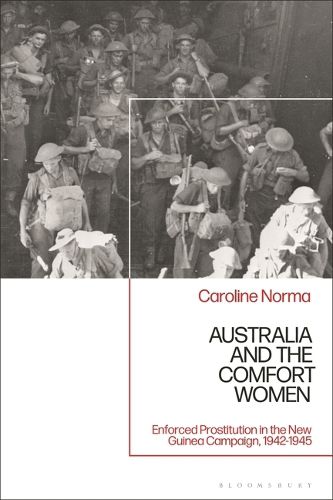Readings Newsletter
Become a Readings Member to make your shopping experience even easier.
Sign in or sign up for free!
You’re not far away from qualifying for FREE standard shipping within Australia
You’ve qualified for FREE standard shipping within Australia
The cart is loading…






In the aftermath of WWII Australia undertook a number of war crime trials, and yet despite detailed records about Japanese military sexual slavery during the New Guinea Campaign, 'enforced prostitution' was not among the crimes prosecuted. This book asks why, when enforced prostitution was listed as a war crime, and both Australian and civilian authorities had reported the Japanese 'comfort women' scheme of military sexual slavery, its perpetrators were never called to justice.
Bringing unpublished evidence to light, and employing both English and Japanese archival sources, this book describes the nature and extent of the trafficking and sexual slavery of women in the Pacific theatre of war, and connects it to sexual exploitation and violence in post-war Japan, Korea, Vietnam, Afghanistan and Australia. Highlighting the ways in which cultural assumptions about Asian women influenced the perception and treatment of the so-called 'comfort women' by Australians, it argues that this prevented the prosecution of perpetrators for war crimes, and contends that these cultural assumptions have continued to influence the business, and tolerance, of sexual slavery in Australia today.
$9.00 standard shipping within Australia
FREE standard shipping within Australia for orders over $100.00
Express & International shipping calculated at checkout
In the aftermath of WWII Australia undertook a number of war crime trials, and yet despite detailed records about Japanese military sexual slavery during the New Guinea Campaign, 'enforced prostitution' was not among the crimes prosecuted. This book asks why, when enforced prostitution was listed as a war crime, and both Australian and civilian authorities had reported the Japanese 'comfort women' scheme of military sexual slavery, its perpetrators were never called to justice.
Bringing unpublished evidence to light, and employing both English and Japanese archival sources, this book describes the nature and extent of the trafficking and sexual slavery of women in the Pacific theatre of war, and connects it to sexual exploitation and violence in post-war Japan, Korea, Vietnam, Afghanistan and Australia. Highlighting the ways in which cultural assumptions about Asian women influenced the perception and treatment of the so-called 'comfort women' by Australians, it argues that this prevented the prosecution of perpetrators for war crimes, and contends that these cultural assumptions have continued to influence the business, and tolerance, of sexual slavery in Australia today.